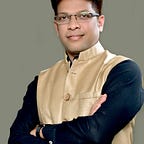07 TIPS ON HOW TO BECOME AN EFFECTIVE LEADER
From Mahatma Gandhi to Nelson Mandela, effective leaders have the capacity to inspire people and empower their followers. In fact, research shows that true leaders don't care about title or position, people follow them because of their strong mission and powerful vision.
Effective leaders are visionaries who inspire people by motivating them to work for a powerful cause directly impacting their life and identity. Most often, this is accomplished through the creation of a shared vision to unify a group of people, the fostering of collaboration, and the identification of a common goal related to each individual.
In order to improve leadership skills, people in leadership roles should take the time to hone their relevant skills and adjust their style to suit the needs of the people and followers. Here are the 07 tips effective leaders use to keep their people motivated, and how anyone aspiring to become a great leader can apply them.
1 Lead By Example
Great leaders remind themselves regularly that actions speak louder than words. Effective leaders are able to motivate their people and guide their followers to success by being the first to walk the talk, no matter how big or small they seem. Leading by example is the fastest way to build trust among people. When you hold yourself to a high standard, your people will look to gain your approval by doing the same. Leadership only succeeds when it shows others how to extend and push for greatness.
2 Be prepared to fail
Failure is an important stepping-stone toward success. It isn't possible that every decision a leader takes will result in a positive outcome so it is very important that, as a leader, you must acknowledge and accept the outcome. The key to growing from a good leader into a great one is learning how to appreciate that failure. This can also often lead to bigger achievements when it’s embraced rather than hiding. Great leaders take responsibility for the problem and are honest in accepting if anything has gone wrong.
3 Effective Communication
Communication is a key aspect of effective leadership. It helps in communicating your goals to your people and can also promote effective bonding between your followers, who are working with you to achieve a common goal.
For having effective communication, a leader should:
- Start with what's the most important : Start any discussion with what’s most important, making sure that people understand the context of the communication so that they may get clear on the future roadmap.
- Tell and Know expectations early: Communicate upfront about what you expect from your people. Get to know what your people need so that you can meet their expectations — and they can meet yours.
- Active listening: Great leaders don’t just talk, they listen. Active listening helps build rapport and creates stronger relationships. Be focused on what your people are saying, and try your best to understand their feelings. Do take note of their nonverbal communication, such as eye contact, body language, and posture, as well.
- Give and Take constructive feedback: Criticism doesn’t have to be negative and, when handled appropriately, it can actually have a positive impact on the outcome. When delivering feedback, be specific. Explain why you don’t like something and how they can change their approach in the future to better align with shared goals and mutual expectations. Let them know that you’re offering this feedback because you want to see them succeed, not because you want to call them out for a mistake. The same way listen very carefully when someone is giving you feedback and make them feel honored.
- Address concerns immediately and in-person: Issues will inevitably arise. Great leaders address the problem soon, to prevent it from affecting their followers — and becoming an even larger issue. Great leaders always address the concern in-person to avoid misunderstanding or having them misinterpret what they are saying, as well.
4 Know When to Delegate tasks
As an effective leader, it’s important to know when to delegate tasks, and when to complete them yourself. Assigning responsibilities will allow you to decrease your responsibility, which helps you focus on the most crucial tasks you need to complete. On the other hand, this allows you to test your people whether they are able to handle the responsibilities and become leaders in the process.
5 Be Decisive
An effective leader has the capacity to make decisions in an efficient manner in order to achieve a result. As a leader, each situation you will be faced with will be having a number of potential solutions, and while taking a final decision, you should be confident in your ability to guide your people and followers toward the proper outcome. Great leaders do not hesitate to act or make impactful decisions. They have the ability to inspire their people with their strong decisions and stick to that even when faced with difficult circumstances.
6 Putting People First
Effective leaders know the benefit of approaching their work from a people-centric perspective. By taking the time to know your people and understand their individual needs, mindset, and expectations, you will not only develop better strategies for achieving shared goals, but will also create an environment in which your people feel heard, respected, and cared for. Great leaders achieve this type of relationship with their people by keeping communication open, clear, and honest, consistently recognizing everyone’s contributions and accomplishments.
7 Follow your own rules
Do as I say, not as I do is a horrible leadership model. Great leaders never bend the rules just because they are the leader. Their dishonesty and hypocrisy will immediately cancel out any authority they are trying to convey. If the leader is not willing to follow the rules, why should anyone else? Great leaders establish rules and stick to them.
